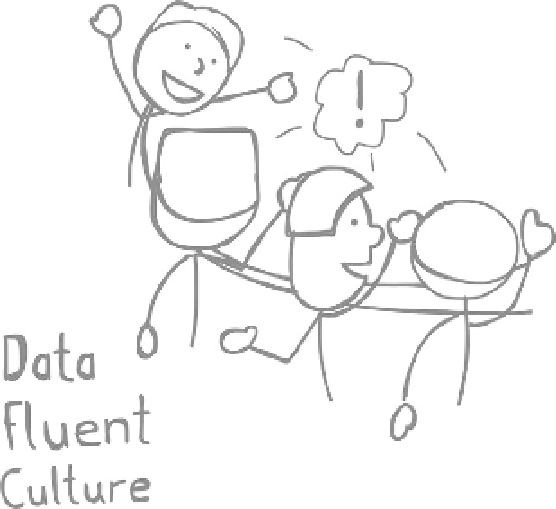Database Reference
In-Depth Information
ELEMENT 3: THE DATA FLuENT CuLTuRE
If individual skills are a requirement for the exchange of ideas through data,
the culture of the organization is the nutrient-rich soil that helps these indi-
vidual skills grow. A data fluent culture is built upon organizational leadership,
shared understanding and conventions, and everyday habits and processes
that make data communication a priority.
People in any organization will look to their leaders to set expectations and
model behaviors. First and foremost, data fluent leaders should communicate
using data to support their arguments and priorities. By doing so, they set
the standard for quality data products and demonstrate their data literacy
in public forums.
The language of data has its own dialect from organization to organization.
This dialect reflects the organization's industry, history, and circumstances, and
results in unique meanings associated with its data. For example, a concept
such as
customer satisfaction
can have wide-ranging meaning. The definition
will tie to the organization's approach in collecting the data, expectations of
what
satisfied
means, required time period for data gathering, and sample
size. The goal of a data fluent culture, in part, is to ensure that everyone
knows what is meant by a term like customer satisfaction. A data fluency
culture breaks down when people spend more time debating terminology,

Search WWH ::

Custom Search